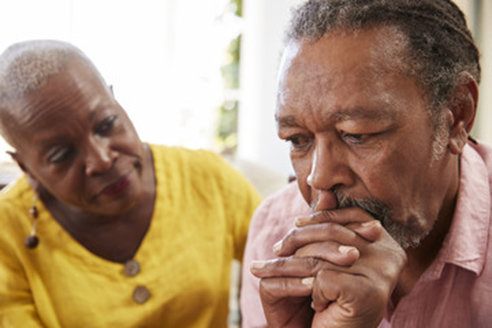 Severna Park
Severna ParkFair, 60°
Wind: 3.5 mph, V
 Severna Park
Severna Park

Dementia is one of the most heartbreaking, baffling situations that people face as they age. Families are left trying to make sense of symptoms that make no sense at all. Getting information, even from health care professionals, may be difficult, because dementia affects people in different ways. My goal in this article is to increase your understanding of dementia and to talk about ways you can help your loved one living with these symptoms.
Is Dementia A Disease?
We speak of dementia as if it is a disease, but it’s actually a set of symptoms that are present in many conditions. Those affected by Alzheimer’s, Huntington’s disease, Lewy Body Disease, head trauma and mini strokes can all exhibit signs of dementia. Dementia is often thought of as a personality disorder, or mental illness, but these assumptions are false.
Is Dementia The Same For Everyone?
This is perhaps one of the more baffling aspects of dementia. These symptoms may not be the same for each person affected. They may not even be the same day to day. Caregivers need to evaluate and regularly adjust to meet the needs of their loved ones.
In fact, a person may be experiencing a completely different disease. Most people have heard of Alzheimer’s, but few are familiar with frontotemporal dementia, which is often misdiagnosed as Alzheimer’s. In FTD, as it is commonly called, the frontal and temporal lobes of the brain actually shrink, and certain substances increase in the brain. FTD can be recognized by the physical, movement-related symptoms present, in addition to common dementia behaviors. These include tremors, spasms, difficulty swallowing, and rigidity.
FTD and Alzheimer’s are good examples of how the symptoms may be similar, but they have a different origin.
Sundowner’s Syndrome
Symptoms often increase or appear at the end of the day. This condition is known as “Sundowner’s Syndrome,” after the time period in which it takes place. You’ll notice that your loved one may seem incredibly tired or sad and may be argumentative and uncooperative. Confusion increases and wandering around the house is common.
Your best strategy here is to avoid planning complex activities in the evening hours. You may want to consult with the doctor, as many seniors react positively to medication designed to help Sundowner’s symptoms.
Tips For Communication
Communicating with your loved one after they become diagnosed with dementia may become more and more difficult. It can be exhausting for both parties! Be sure to maintain eye contact and a friendly expression on your face. Speak slowly and clearly, but use your natural speaking voice. Be patient and don’t try to rush the conversation.
Body language becomes more important than ever now. Watch for body language clues and be mindful of the messages you send through your own body language.
Remember that you did not win every argument before dementia, and you won’t win every conversation now. Learn to recognize the non-negotiables and the things you can overlook in the interest of communication and getting along.
Get Professional Help For Dementia
Many caregivers feel an obligation, family or otherwise, to assume sole care and responsibility for their loved one with dementia. But the truth is unless you are trained and educated as a dementia care provider, it’s going to be difficult for you to be objective about the situation. It won’t benefit either one of you to try to provide 24/7 care.
Contact Lean On Dee if you need help with your family member or loved one who has received a dementia diagnosis. Lean On Dee can provide support by helping you with housing placement or doing check-ins. They also offer a Dementia Live program, a high-impact dementia simulation experience that allows you to understand what it’s like to live with cognitive impairment and sensory changes. Call 800-413-8733 today and get the support you need.
Comments
No comments on this item Please log in to comment by clicking here